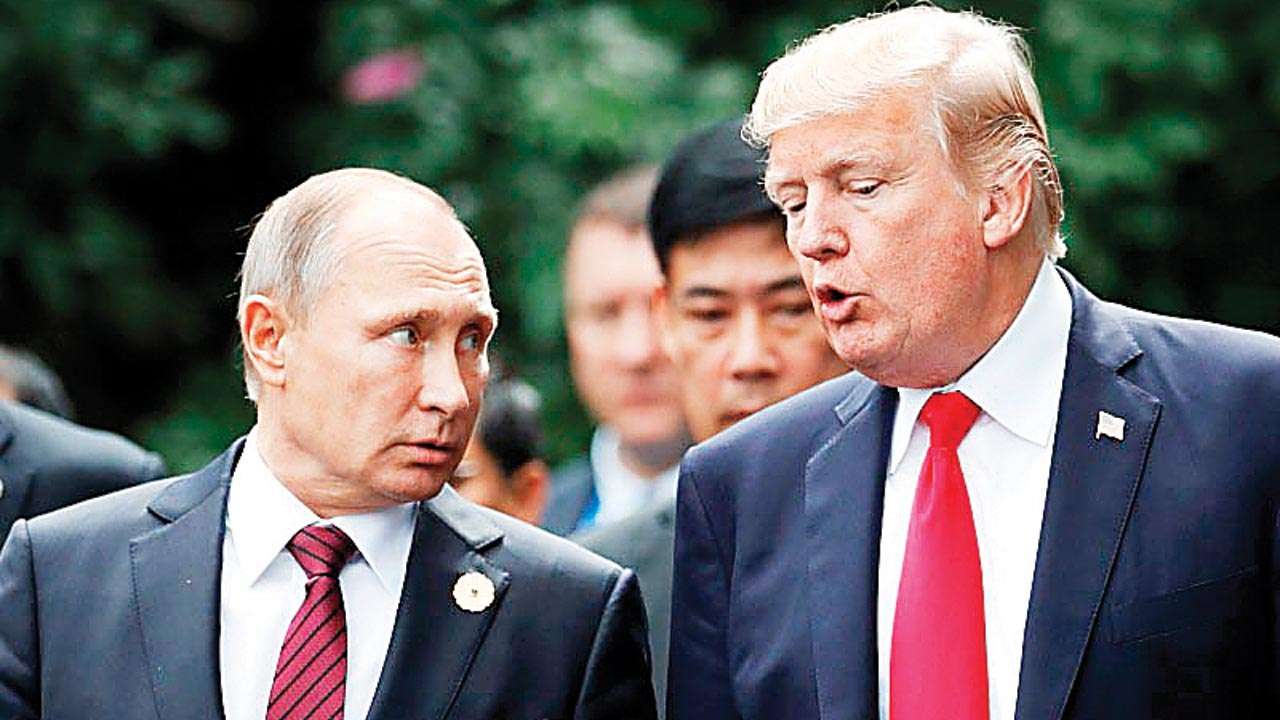
On July 16, the international community had its eyes and ears set towards Helsinki, the capital of Finland. The reason was that US President Donald Trump was meeting his Russian counterpart Vladimir Putin for a bilateral summit at a neutral venue. What caught everyone’s attention was how at the press conference President Trump gave Russia a clean chit, sparking huge condemnation at home. Even FBI director Christopher Wray publicly disagreed with the President stating that there was no question that Russia interfered in the US election.
Clearly, the bonhomie between the two leaders doesn’t translate to bonhomie between the US and Russia. Indeed, the backlash from the US public will most probably cause the US President to adopt a tougher line on Russia, which means that relations between the countries are likely to deteriorate further, despite the smiles between the leaders at Helsinki.
This means a tough time for many countries, especially India. Currently, India is trying to balance both Russia and the United States as it wishes to have good relations with both sides. Right now, it risks alienating both countries, which is exactly what the policymakers in India do not want. Recently, when India joined the Quadrilateral Security Dialogue (QUAD), the Russians saw it as India choosing to join a US-led alliance, which was anti-Russia, as well as China. Secondly, India’s growing proximity to Israel, which is very much a US ally, and increased defence cooperation with them, again irked the Russians, which share a robust defence-cooperation with India. The result was that Russia started to move closer towards Pakistan and even participated in joint military exercises with them. Ultimately, India had to reach out to both Russia and China at Sochi and Wuhan, respectively, to ‘reset’ the ties and send a message to them that it was not an alliance partner of a great power.
But India’s problems are by no means over. The country’s decision to continue negotiations with Russia for the S-400 missile defence system has come in for criticism from the US, who passed the Countering America’s Adversaries Through Sanctions Act (CATSA) last year. So countries which do business with Russia, Iran and North Korea, will face the wrath of US sanctions. On a visit to India, last month, US ambassador to the UN Nikki Haley said in an interview that, ‘the US does not take relations with Russia and India lightly. We have multiple things to look at with respect to US-Russia relations.’ The US is also expected to meet India on the 2+2 dialogue in September, where the issue is expected to come up and India may be forced to take a position.
India has now started to realise that being an emerging global power comes at a cost. In the days of the Cold War, India’s principled stance of non-alignment was respected and neither the great powers nor the international community wanted or expected India to join either sides. It is very different today. With more countries following India’s lead, seeing it as a major player in the international system, the country is increasingly being forced to choose sides. India is trying to calibrate its position by inviting President Trump as a special guest to the Republic Day celebrations, but this may not help in the long term.
What doesn’t help India is that the fault lines between the great powers are visibly getting wider. Both the US and Russia are finding themselves on opposites sides of the table on most of the occasions, be it the Syrian civil war, South China Sea issue, fallout of the Iran nuclear deal etc., and as a result want to see who is standing with them in such situations. The current political discourse is increasingly about, ‘if you’re not with us, you’re against us.’
This is complicated for India. The US is the second-largest market for India, after China, while Russia is still India’s largest defence partner. Also, India shares a warm relationship with countries the US is opposed to such as Iran.
This can be seen in India’s stand when it pulled out of the Iran nuclear deal in response to the US putting economic sanctions on Iran, annoying Tehran. It remains to be seen how India will secure its interests in Afghanistan and Central Asia without Iranian support on the Chabahar port.
India has made a pitch for leniency with a visiting US delegation, but they are unlikely to grant Delhi that leeway. If that happens, the country may have to rethink its options after talks with the US post September.
Whatever India decides it will be a complicated road ahead in the present geo-political climate. From relations with Russia and Iran, to possible growing trade relations with Beijing post the US-China spat, Delhi has to make some hard choices if it means to preserve its national interests, while preserving friendly ties with the US. How it will continue to do that will require some deft diplomacy.
The author is a junior research fellow at the School of International Studies, JNU. Views are personal.